Dua Lipa talks politics, cancel culture, gender rights ... and hasn’t heard ex-boyfriend Paul Klein’s album about her – interview
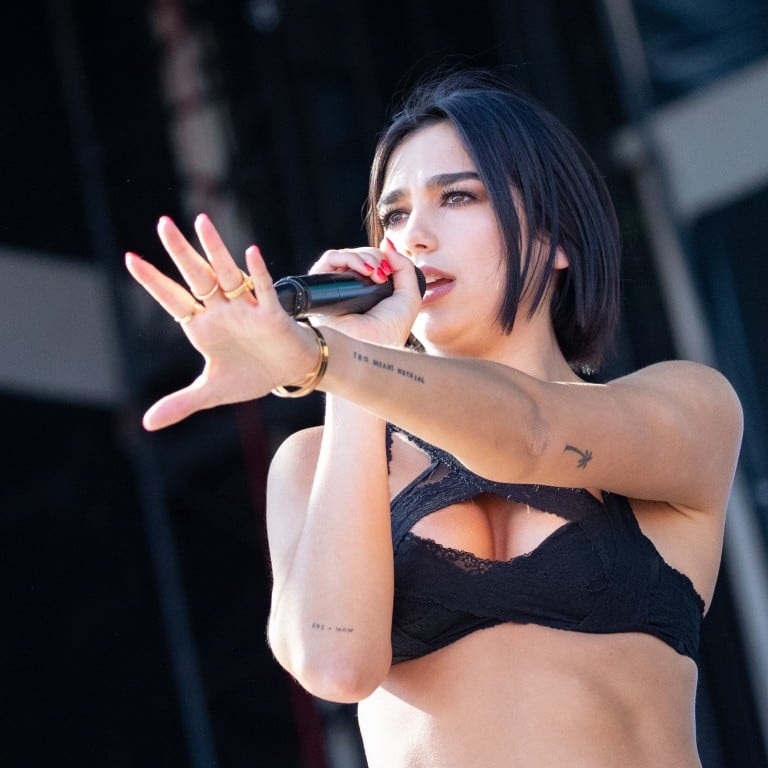
A few months ago Dua Lipa announced that her second album, “Future Nostalgia” was going to come out early. “I hope it brings you some happiness,” she says.
In a review of Lady Gaga’s comeback single, Stupid Love, which was released in February, a critic wrote that the song filled “a void in our downcast landscape”, adding that the only other artist like Gaga right now is the British pop star Lipa. Her music, the review said, is “big, bright, heart-on-sleeve. There’s an appetite for this kind of exuberant sound”.
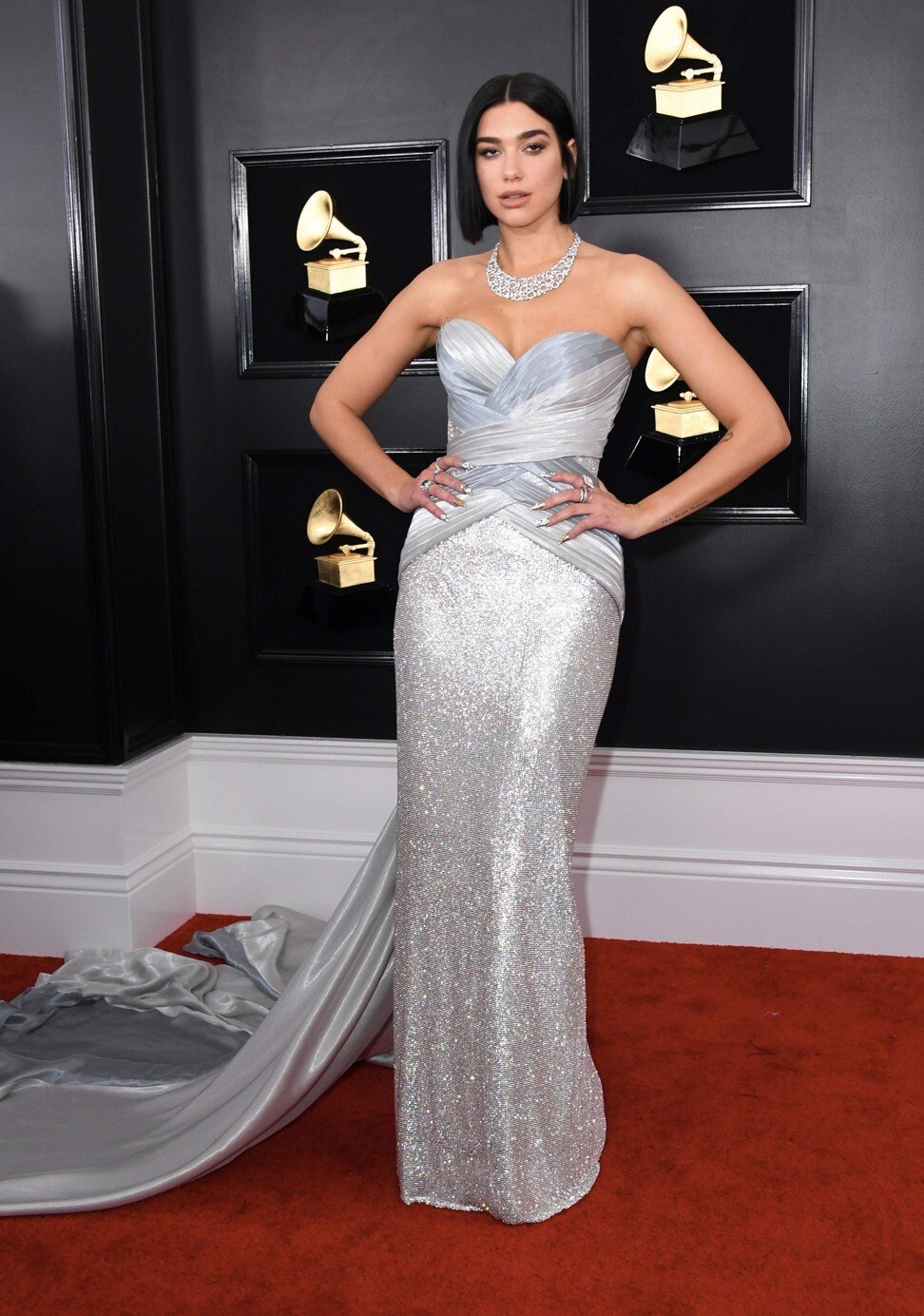
Lipa, when she hears about the Gaga review, looks delighted, if shocked, and even a little daunted. The comparison between the two singers makes sense, though. Lipa’s eponymous debut album won her Grammys and buoyed millions with its sassy, indefatigable resilience. Fast-forward to newly released “Future Nostalgia”, and she is aiming for even greater heights. Like Gaga’s at its best, it is music for endorphins, designed to never make you sad.
“For me,” Lipa says, “there should always be some sort of a happy ending.”
Why Taylor Swift’s new album Folklore might be her best yet
I met the 24-year-old artist earlier this year, before the Covid-19 pandemic got serious, when people still thought nothing about meeting face-to-face. After bumping elbows, we sat down for tea at a banquette in a London club.
These are real things I have gone through. Getting home from school, scared of boys, I put keys between my knuckles. We constantly change the way we are so we don’t get harassed, cover our bodies so boys don’t say things
Lipa has a husky voice and, at 5ft 8in (1.72 metres) was poised. Wearing a baggy jumper, she sat rather still; her huge leather jacket taking up a seat of its own. Keith Haring’s figure drawings are tattooed on her thumbs; a third tattoo, on her left forearm, reads “This means nothing”. Imagine James Dean playing Wonder Woman and you have a sense of her cool and purpose, which is to do exactly what pop stars are on this planet for – to cheer us up.
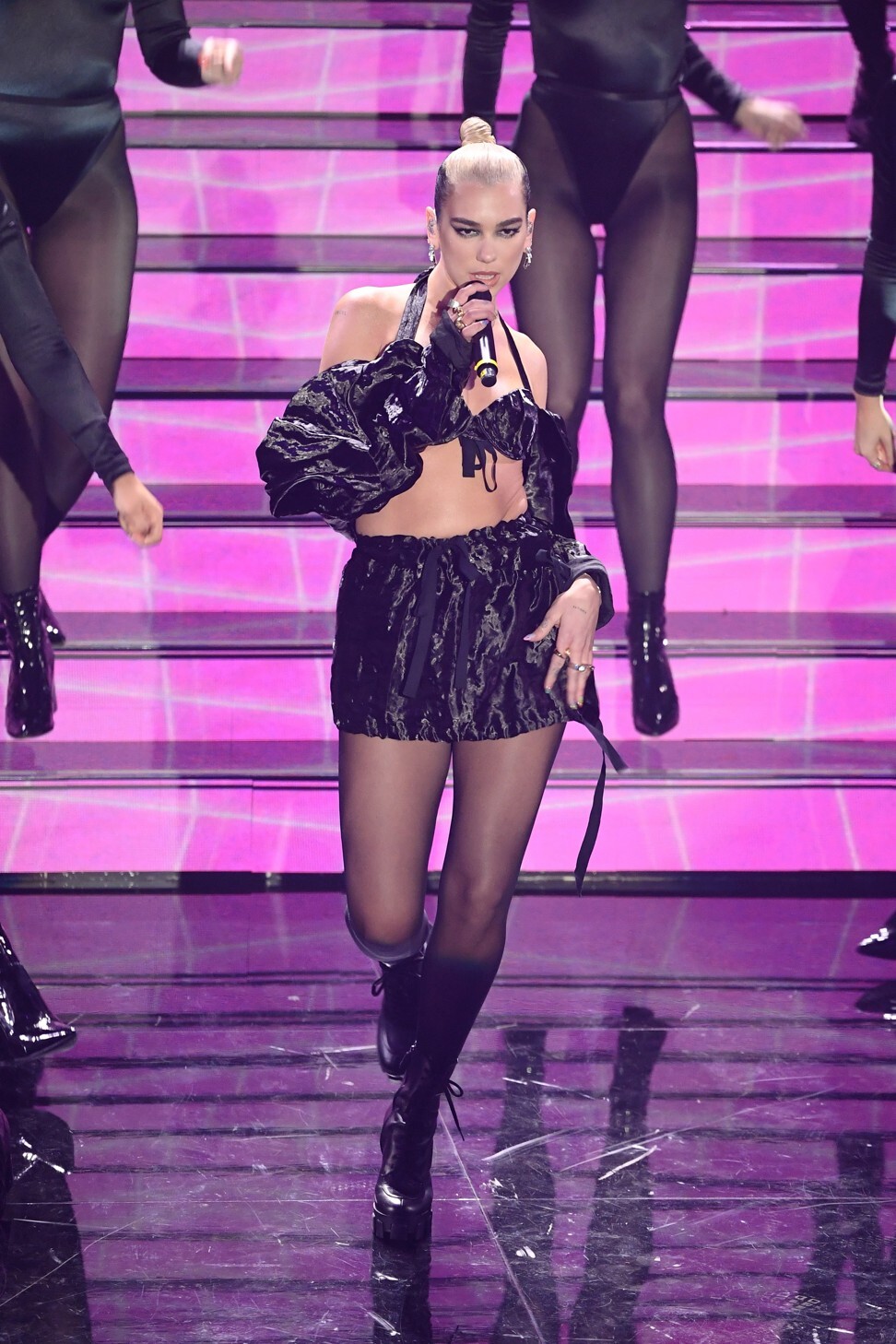
Lipa knows the importance of that more than most. In 1992, her Kosovar-Albanian parents fled their war-torn country for London; she was born three years later. There was a brief spell in the Balkans, but she soon returned to the UK capital, where, some years and a few jobs later, she became a globally recognised star.
Lipa is a blend of her past and present, the personal and overtly political, someone who writes music as euphoric as Physical – the popular “Future Nostalgia” track has a video based around an orgasm – while using her vast platform to support former Labour Party leader Jeremy Corbyn, who failed to inspire such ecstasy among voters.
Why the latter, I ask?
“I just grew up with parents who are outspoken,” Lipa explains, matter-of-fact.
BTS to join Billie Eilish and Dua Lipa on James Corden’s coronavirus show
So the lives they led directly influence her politics?
“Absolutely. Everything I speak about comes from my upbringing. Seeing my parents adapt to any situation, raise a family, work many jobs, go to university in the evening … I watched them sacrifice, yet I understand how lucky I am to have a British passport and to have come back to London for my career.”
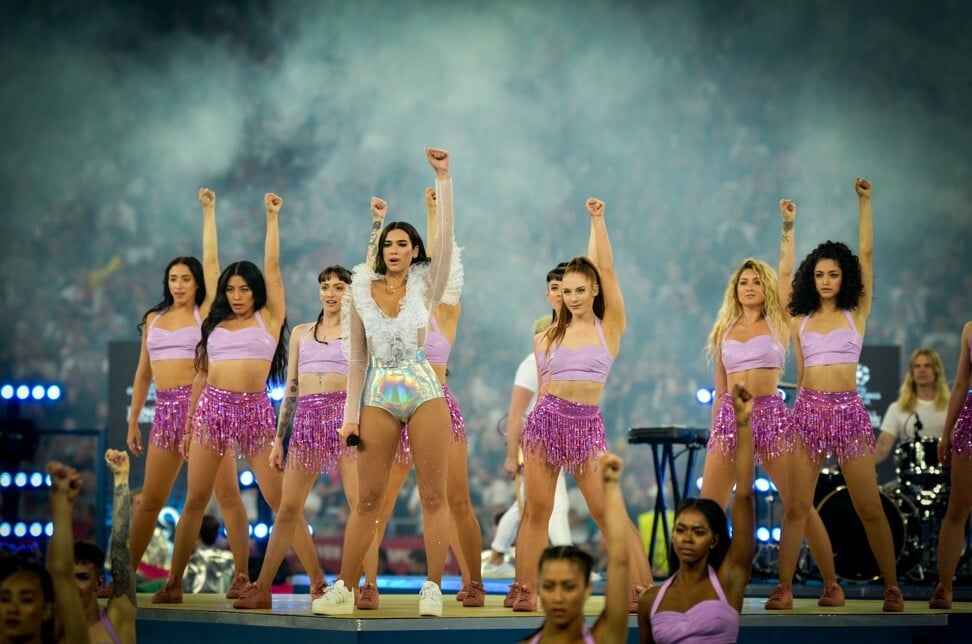
She stops and seems to well up.
“I just feel so sad for the next generations, who may not have the opportunity to do just that,” she continues quietly. “It really breaks my heart that I won’t see young people accepted with the open arms I was. Because of closing borders, because of the refugee situation. Nobody wants to leave their home if they don’t have to, if it isn’t to get away from humanitarian crisis. It’s heartbreaking, so I encourage people to do what, in my eyes, is the right thing.
“I understand when people say they can’t get behind a certain leader, but it’s more about the values behind certain parties,” she says carefully.
She also backed US presidential candidate Bernie Sanders, who dropped out of the 2020 Democratic race in April.
“It’s a step in the right direction I’m trying to push. I get a lot of s**t for political things, but I want a world where we don’t have to be afraid to be ourselves, and I’ll continue to champion that, even though people will have a lot to say.”
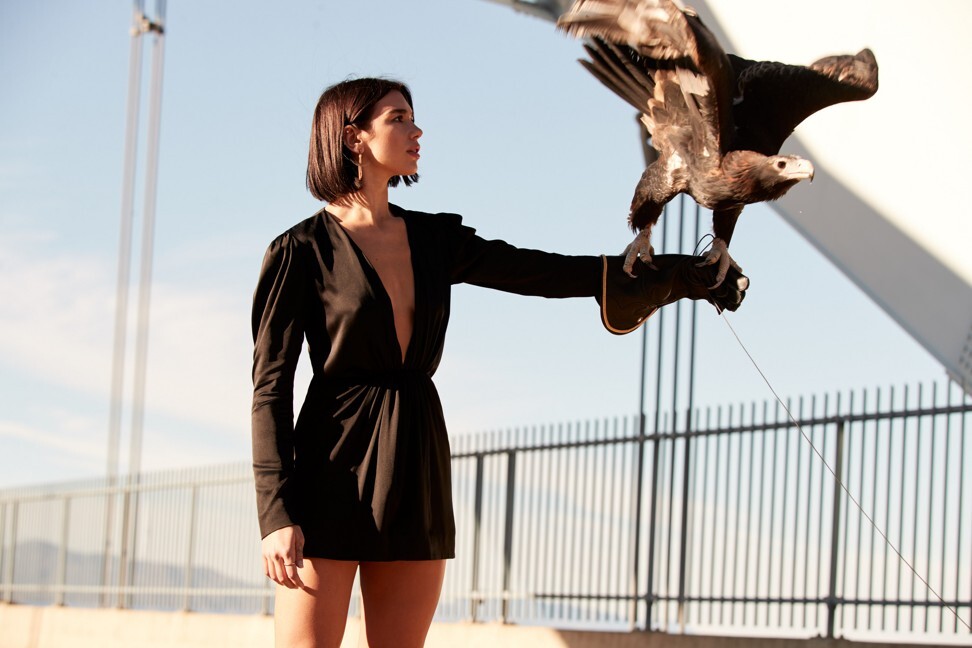
It must be exhausting being a pop star in 2020, just one perceived misstep away from a social media backlash or group shaming – the “cancel culture”. Lipa has had such moments, from the trivial to the more pervasive, like #dualipaisoverparty, which popped up after she was filmed visiting a strip club on the night of the Grammy awards in January.
She smiles. “I mean, cancel culture is … interesting … You know, artists are people, and we learn from mistakes and apologise when it’s due. But, also, if I stand by my actions, I just won’t comment.”
Kylie Jenner vs Forbes – did she really lie about being a billionaire?
There was no statement after the strip club. “I never do anything to be mean or degrading. Everything has a good intention, and if things get taken a wrong way, I’ll apologise. But I can’t live my life being scared in case someone tries to cancel me for something silly.”
There were tabloids, for instance, that published photographs of Lipa drinking at a party in 2018 after winning two Brit Awards (new artist and British female solo artist).
Would she have such attention if she were a male pop star? She shakes her head and scoffs.
“There is a lot less scrutiny of male pop stars,” she says, before arching an eyebrow so high you could fit a truck under it.
“Maybe we’re more fun to write about? I don’t know, but the way women are described compared to men, it’s, like, she is wearing shorts? ‘She puts on a leggy display!’ I just feel I’m here because I do music, but when people write articles like that about me, it takes it away from my talent and makes me a thing. An object. People like to just objectify women.”
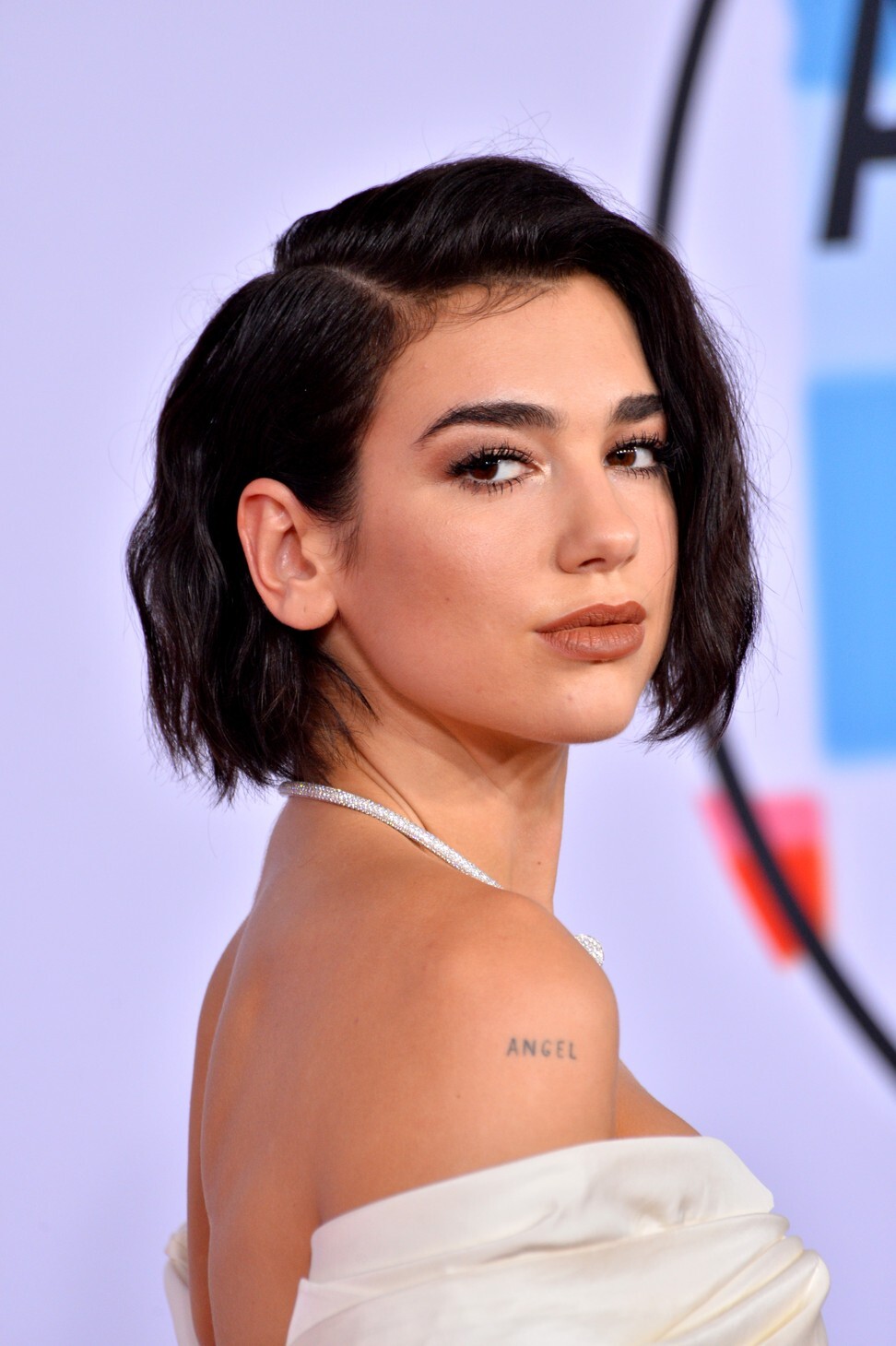
Which brings us to the most fascinating track on “Future Nostalgia”. Boys Will Be Boys is a jaunty closing number that lists, from mansplaining to sexual harassment, the things women put up with. It is a pointed – not to mention incredibly catchy – number with a show tune melody.
What did she want that song to achieve?
“A conversation,” she says calmly. “Because these are real things I have gone through. Getting home from school, scared of boys, I put keys between my knuckles. We constantly change the way we are so we don’t get harassed, cover our bodies so boys don’t say things. From when we are kids we are told the way boys act towards us is completely normal.
“Like ‘kiss chase’ – girls are terrified to get kissed by a boy at a young age. You’re running because you don’t want to get kissed. You’re giggling because it’s uncomfortable. You’re seven years old and teachers don’t do anything because it’s just a game. And it’s difficult, once you’re in a fixed mindset, to change your ways. However, if we talk about this in schools, it would make a big difference to society.”
Why Western pop stars are turning to K-pop collaborations
Lipa says she has not experienced sexual harassment in the music industry. “Maybe, over time, I just let off this ‘don’t f*** with me’ vibe,” she shrugs, and this bullish attitude fits her music, a stretching out of [Cindy Lauper’s] Girls Just Want to Have Fun ethos over an entire career.
And few artists are bigger right now. In 2017 Lipa had higher UK streaming numbers on Spotify than Beyoncé. But discuss the build-up to the second album and she is not as confident as some who have had similar success.
Talking about how she feels just before releasing new music, Lipa admits: “Online criticism can make you feel like you’re not good enough, so I was nervous.”
Her song New Rules has been streamed more than a billion times so it’s a surprising admission, but despite having a considerable online presence and fan following, she is no longer on Twitter, except for posts from her management team. “It felt like a breeding ground for hate and stopped me being proud of my achievements,” she explains. “Instead of feeling something was amazing, it made me feel I wasn’t worth it.
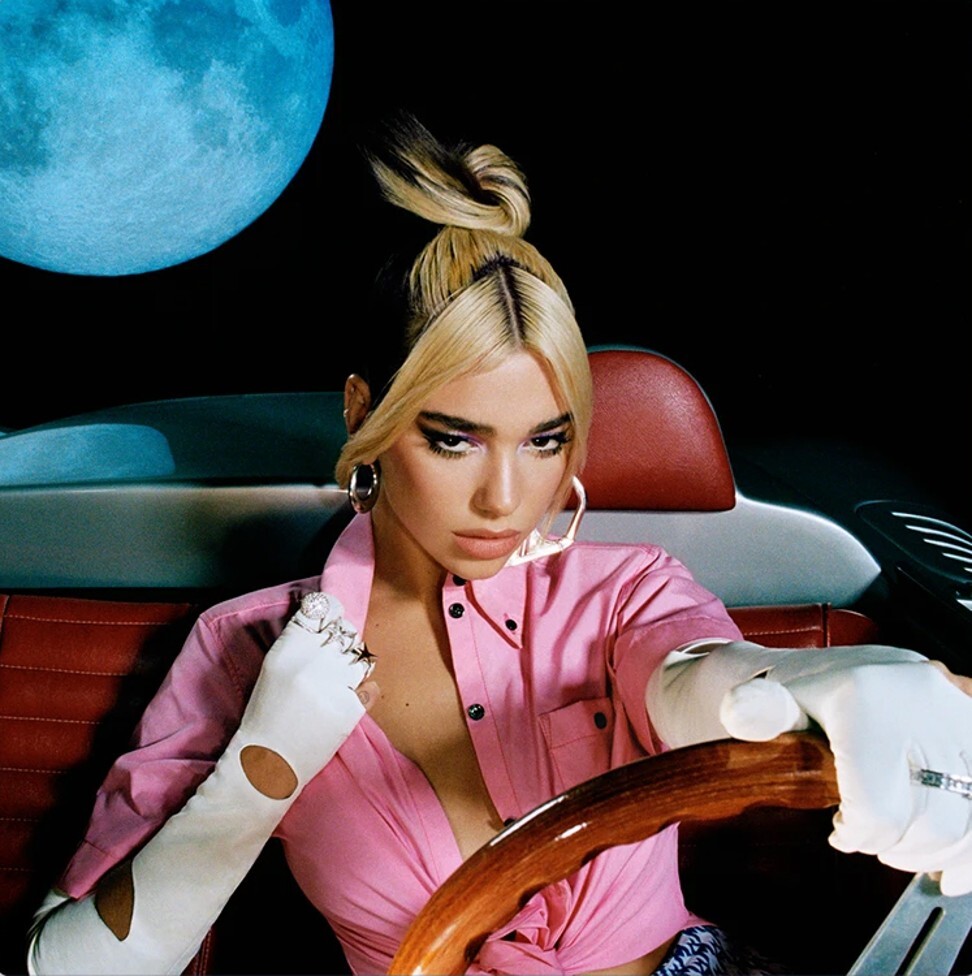
What’s sad is Lipa is only 24 and already has quite a platform that many of her generation are growing up on. “It’s a massive shame,” she says. “But we have to protect our mental health. I wish social media companies could make it a safer space. It’s just become unkind.”
That said, there is an expectation among modern fans that their heroes are “available”.
“Maybe [the fans should] take a step back from social media themselves,” says Lipa. “Even when it wasn’t at the height of negativity, my advice to fans feeling anxiety was to take a step back. I guess I had to take that on myself a little bit.”
Move over, BTS – Blackpink has just become the highest-charting K-pop group
At least half the online gossip about her revolves around her relationship with Anwar Hadid, brother of supermodel sisters Gigi and Bella Hadid. The other much talked-about man in her life is her father, Dukagjin Lipa.
People think he is hot, I tell her.
“Yes, I am aware of this,” she squirms. “He finds it funny. We don’t really talk about it much!”

And what did she think of her ex-boyfriend, the musician Paul Klein, writing an entire album (“Malibu Nights”) inspired by her for his band, Lany?
“I haven’t really heard it,” she says.
In the A-team: Ariana Grande’s 7 best celebrity pals
We end with a rather clinical hug (this was before social distancing, if you remember that). I suppose it shows that, really, we are all in this together – pop star or pauper. The former, though, especially artists like Lipa, have a key role to play now. She used to write heartbreak music because it was easier, but she realised it is not necessarily what she – or anyone – needs.
“Especially in times like this,” she points out. Recently, when Spotify data was analysed to see which songs appeared on playlists with “feel good” in the title, Don’t Start Now, from “Future Nostalgia”, came in at No 2. “We just need songs to help us get out of bed and make the day a little easier,” Lipa says. “Things don’t have to be miserable all the time.”
Want more stories like this? Sign up here. Follow STYLE on Facebook, Instagram, YouTube and Twitter .

Back with the relentlessly upbeat new album Future Nostalgia – favourably compared to Lady Gaga – 24-year-old Dua Lipa lets rip about inequality, group shaming, male harassment, Jeremy Corbyn and why people find her dad Dukagjin Lipa hot